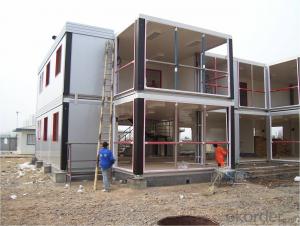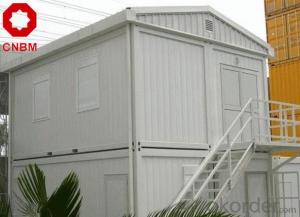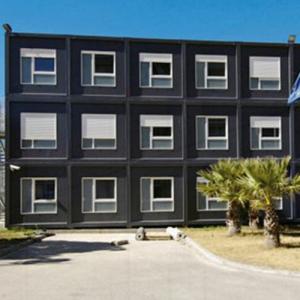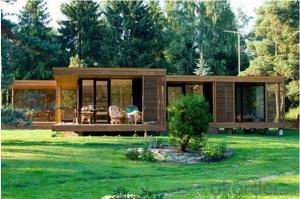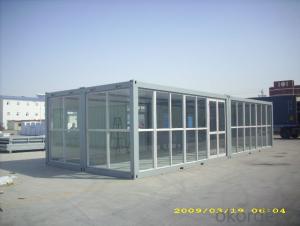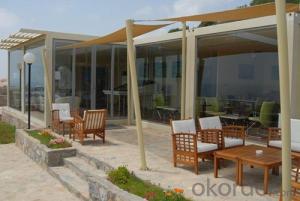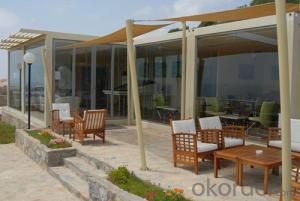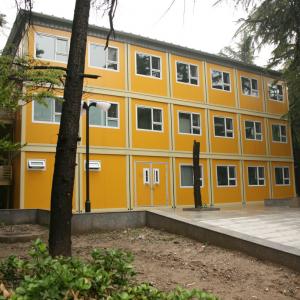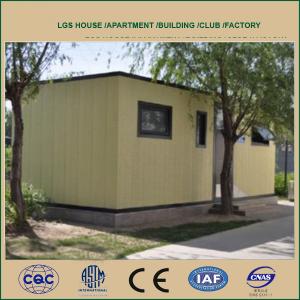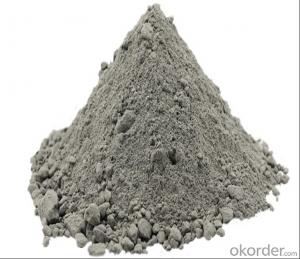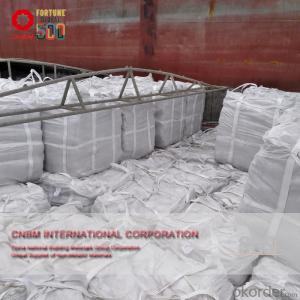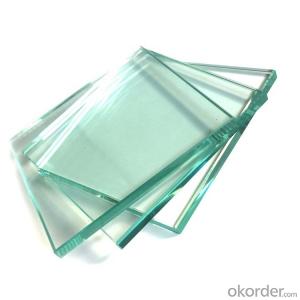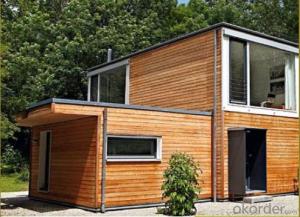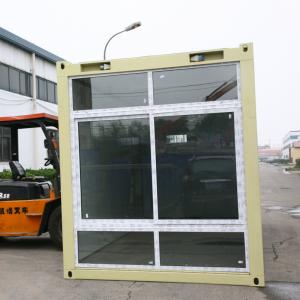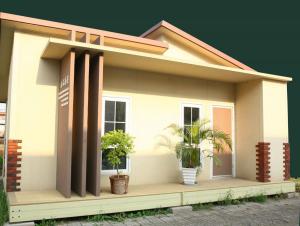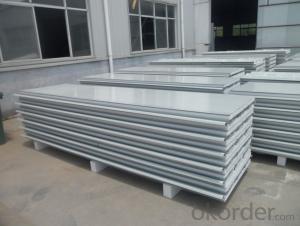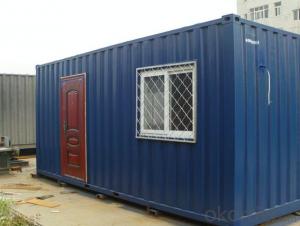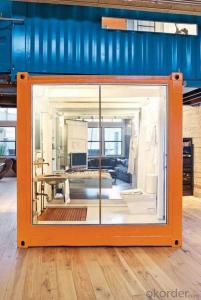Comfortable Modualr Container House/ Home Made in China
- Loading Port:
- Tianjin
- Payment Terms:
- TT OR LC
- Min Order Qty:
- 1 set
- Supply Capability:
- 1000 set/month
OKorder Service Pledge
OKorder Financial Service
You Might Also Like
Container House with Prefabricated House ;Movable Container House :
Comfortable Modualr Container House
20ft Container House,Movable House,Prefab House,Mobile House,Modular House,Low-cost Office,Toilet,ShowerSize: L * W * H = 12192 mm * 2438 mm * 2896 mm
Product features: ISO standard
Load bearing: 30480 KGS/67200 LBS
Tare weight: 3840 KGS/8465 LBS
Maximum payload: 26640 KGS 58735 LBS
2) As a storage tank
Used to store the goods, and we also offer the professional storage container
(3) Modified into a container house
Qingdao Rayfore is a professional manufacturing enterprise, specializes in container buildings
Our company is a group company,engaged in new and used shipping container sales, special containers and various container house.And the priducts are sold to all over the world.
If you have need, contact us .
| Shipping container Specification | ||||
| 20GP | 40GP | 40HQ | ||
| Length | 6058mm | 12192mm | 12192mm | |
| External Dimension(mm) | Width | 2438mm | 2438mm | 2438mm |
| Height | 2591mm | 2591mm | 2896mm | |
| Length | 5898mm | 12032mm | 12032mm | |
| Internal Dimension(mm) | Width | 2352mm | 2352mm | 2352mm |
| Height | 2385mm | 2385mm | 2690mm | |
| Door Opening | Width | 2,337~2,343mm | 2,337~2,343mm | 2,337~2,343mm |
| Height | 2,272~2,283mm | 2,272~2,283mm | 2,577~2,583mm | |
| Internal Capacity | 33.2cum | 67.7cum | 76.4cum | |
| Container Weight | 1,960~2,340kg | 3,710~3,850kg | 3,990~4,250kg | |
| Max Pay Load | 21,660~22,040kg | 26,630~26,770kg | 26,230~26,490kg | |
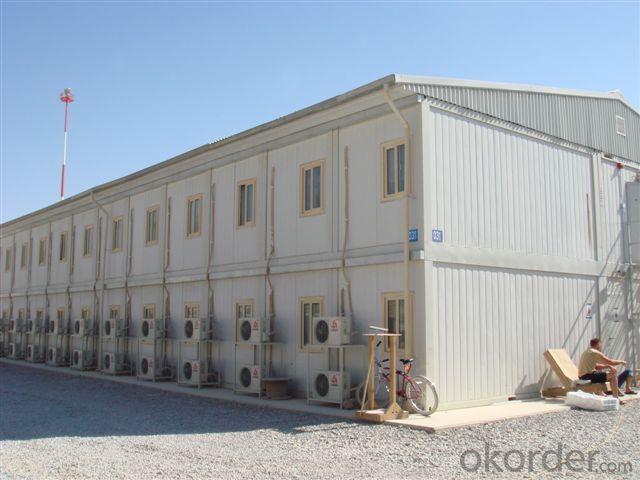
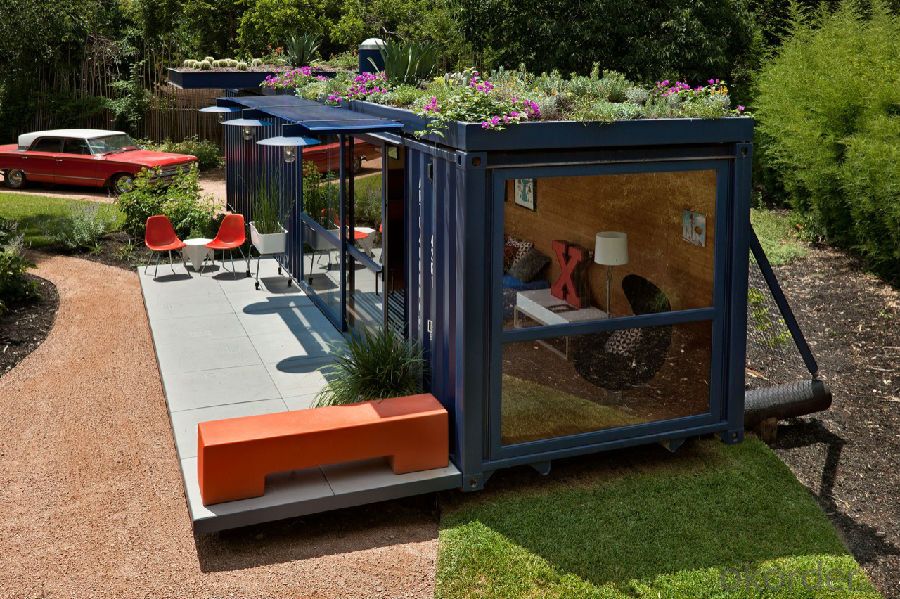
FAQ for Prefabricated Houses:
1. Q: What’s the delivery?
A: within 15-25 days after payment
2. Q: How long will your house stay for use?
A: Our light steel prefab house can be used for about 70 years.
3. Q: How long is the erection time of one house?
A: for example one set of 200sqm house, 8 workers will install it within 45 days.
4. Q: Can you do the electricity,plumbing and heater?
A:The local site works had better to be done by the customers.
- Q:Can container houses be designed for small businesses or shops?
- Yes, container houses can be designed for small businesses or shops. In fact, container houses have gained popularity in recent years due to their versatility and cost-effectiveness. They can be easily converted into functional spaces for various purposes, including small businesses and shops. Container houses offer several advantages for small businesses and shops. Firstly, they are highly customizable, allowing for easy modifications to suit specific business needs. Containers can be fitted with windows, doors, and partitions to create separate areas for retail, storage, and office space. Additionally, they can be stacked or connected to form larger spaces, allowing for expansion as the business grows. Furthermore, container houses are relatively affordable compared to traditional brick-and-mortar structures. This cost-effectiveness is especially beneficial for small businesses and shops with limited budgets. Containers are readily available, and their modular nature reduces construction time and labor costs. Moreover, they can be transported and relocated, making them suitable for temporary or mobile businesses such as pop-up shops or food stalls. Container houses also offer sustainability benefits, which align with the increasing trend towards eco-friendly businesses. Containers are typically made from recycled materials, reducing the environmental impact of construction. Furthermore, they can be equipped with energy-efficient features like insulation, solar panels, and rainwater harvesting systems, minimizing energy consumption and promoting sustainability. In conclusion, container houses can indeed be designed and utilized for small businesses or shops. Their versatility, affordability, and sustainability make them an attractive option for entrepreneurs looking for flexible and cost-effective spaces to set up their businesses.
- Q:Can container houses be designed to have a home spa?
- Yes, container houses can be designed to have a home spa. With proper planning and design, containers can be transformed into luxurious and functional spaces that include all the amenities of a spa, such as a sauna, steam room, hot tub, or even a small pool. By incorporating the necessary plumbing and electrical systems, as well as utilizing innovative design techniques, container houses can be customized to cater to one's desire for a relaxing and rejuvenating home spa experience.
- Q:Are container houses suitable for Airbnb rentals?
- Container houses are indeed a viable choice for Airbnb rentals. These distinctive and contemporary dwellings boast various advantages that can entice potential Airbnb guests. Firstly, container houses often showcase a sleek and minimalist aesthetic, which can captivate travelers in search of trendy and visually captivating accommodations. Moreover, these houses are typically compact and well-designed, providing a snug and cozy space for guests to enjoy. They are also equipped with all the essential amenities, including bathrooms, kitchens, and living areas. Additionally, container houses offer an eco-friendly and sustainable lodging option, which holds increasing significance for numerous travelers. Constructed using recycled materials, these houses can be designed to be energy-efficient, thereby minimizing their environmental impact. Consequently, environmentally conscious guests are likely to be drawn to these sustainable accommodation options. Another advantage of container houses lies in their mobility. These structures can be effortlessly transported and set up in various locations, enabling Airbnb hosts to offer unique and off-the-grid experiences to their guests. Whether it be a beachfront locale, a secluded mountain retreat, or a bustling city center, container houses can adapt to diverse environments, affording guests an unparalleled and extraordinary stay. Lastly, container houses provide a cost-effective alternative for Airbnb hosts. Their modular nature allows for lower construction costs compared to traditional houses. Consequently, hosts can offer competitive rental rates, attracting budget-conscious travelers who seek affordable yet stylish accommodations. In conclusion, container houses possess the potential to be an excellent choice for Airbnb rentals. With their modern design, sustainability, mobility, and cost-effectiveness, these distinctive homes can appeal to a wide array of travelers in search of a memorable and comfortable stay.
- Q:Can container houses be designed with a garage?
- Yes, container houses can be designed with a garage. The versatility of shipping containers allows for customization, including the addition of a garage space. With proper planning and design, containers can be modified to accommodate a garage area alongside the living spaces, providing a practical solution for homeowners looking to incorporate a garage within their container house design.
- Q:Can container houses be designed with a built-in wine cellar or storage?
- Yes, container houses can be designed with a built-in wine cellar or storage. With proper planning and design, the interior layout of a container house can be customized to include specific features such as a wine cellar or storage. This can be achieved by utilizing the available space efficiently and incorporating suitable materials and temperature control systems to ensure optimal conditions for storing wine.
- Q:Do container houses require planning permission?
- In most cases, container houses do require planning permission. The regulations regarding planning permission for container houses vary depending on the location and local building codes. While some areas may have more lenient rules, many jurisdictions treat container houses as permanent structures and subject them to the same planning permission requirements as traditional houses. This means that obtaining planning permission is necessary before installing a container house on a specific site. It is crucial to consult with local authorities or a professional architect to understand the specific regulations and requirements in your area. By doing so, you can ensure that you comply with all necessary permissions and avoid any potential legal issues in the future.
- Q:Are container houses suitable for cultural centers?
- Depending on the specific needs and requirements of the cultural center, container houses can indeed serve as suitable facilities. They possess various advantages that make them a viable option for such centers. To begin with, container houses exhibit high levels of flexibility and adaptability. They can be easily modified and tailored to meet the unique demands of a cultural center. By stacking and arranging the containers in different configurations, a variety of spaces can be created, including exhibition halls, classrooms, meeting rooms, or performance areas. This versatility allows cultural centers to optimize their available space and establish a layout that aligns with their specific activities and functions. Additionally, container houses are cost-effective. In comparison to traditional building methods, they often prove to be more affordable, making them an excellent choice for cultural centers that may have limited budgets. The construction and assembly of container houses are relatively quick and straightforward, resulting in lower labor costs. Moreover, due to their modular nature, container houses can be expanded or reduced in size as required, enabling cultural centers to grow or downsize without incurring significant construction expenses. Furthermore, container houses promote eco-friendliness. By repurposing shipping containers, cultural centers can contribute to sustainability efforts by reducing waste and minimizing the consumption of raw materials. Furthermore, container houses can be equipped with energy-efficient systems, such as solar panels or rainwater harvesting, further reducing their environmental impact. However, it is crucial to consider the specific requirements of the cultural center when deciding to utilize container houses. For example, certain cultural centers may necessitate larger spaces or architectural features that may be challenging to achieve solely with container houses. In such cases, a combination of container houses and traditional construction methods could be contemplated to meet these needs. In summary, container houses can be deemed suitable for cultural centers due to their flexibility, cost-effectiveness, and eco-friendly attributes. They offer a distinctive and customizable solution that can fulfill the diverse requirements of cultural centers while simultaneously contributing to sustainability efforts. Nevertheless, a thorough evaluation of the cultural center's specific demands is imperative to ensure that container houses are the appropriate choice.
- Q:Can container houses be built off-grid?
- Yes, container houses can be built off-grid. Being modular and easily transportable, container houses can be set up in remote locations where access to utilities and infrastructure is limited or nonexistent. With the use of solar panels, rainwater harvesting systems, composting toilets, and other alternative technologies, container houses can generate their own energy and water supply, enabling off-grid living.
- Q:How is the interior of the container activity?
- the overall hanging series of container housing with light steel structure, the wall covered with composite EPS insulation wall panels
- Q:Are container houses suitable for small business offices?
- Indeed, container houses prove to be a viable choice for small business offices. They present various advantages that render them suitable for such purposes. To start with, container houses offer a cost-effective solution. Compared to conventional office spaces, their construction and maintenance costs are significantly lower. This proves particularly advantageous for small businesses operating on limited budgets, enabling them to save substantial amounts of money on rent and construction expenses. Moreover, container houses boast high levels of customization. They can be easily modified and tailored to meet the specific needs and requirements of small business offices. Containers can be stacked or interconnected to create larger office spaces, complete with all the necessary amenities, including electricity, plumbing, heating, and air conditioning. Additionally, container houses exhibit portability and flexibility. They can be effortlessly transported to different locations, making them an ideal choice for small businesses that frequently change their office space or operate in multiple areas. This mobility also allows for future expansion or downsizing, depending on the evolving needs of the business. Furthermore, container houses contribute to environmental preservation. By repurposing shipping containers, we can reduce waste and promote sustainability. This serves as a crucial consideration for small businesses aiming to adopt environmentally friendly practices and minimize their carbon footprint. Nevertheless, it is important to acknowledge certain limitations of container houses. The limited space available within a container may not be suitable for businesses requiring extensive office areas or accommodating a significant number of employees. Additionally, container houses may not align with the needs of businesses seeking a more professional or upscale image. In conclusion, container houses offer a suitable alternative for small business offices, providing cost-effectiveness, customization, portability, and eco-friendliness. Nevertheless, it is imperative to thoroughly evaluate the specific needs and requirements of the business before opting for container houses as office spaces.
1. Manufacturer Overview |
|
|---|---|
| Location | |
| Year Established | |
| Annual Output Value | |
| Main Markets | |
| Company Certifications | |
2. Manufacturer Certificates |
|
|---|---|
| a) Certification Name | |
| Range | |
| Reference | |
| Validity Period | |
3. Manufacturer Capability |
|
|---|---|
| a)Trade Capacity | |
| Nearest Port | |
| Export Percentage | |
| No.of Employees in Trade Department | |
| Language Spoken: | |
| b)Factory Information | |
| Factory Size: | |
| No. of Production Lines | |
| Contract Manufacturing | |
| Product Price Range | |
Send your message to us
Comfortable Modualr Container House/ Home Made in China
- Loading Port:
- Tianjin
- Payment Terms:
- TT OR LC
- Min Order Qty:
- 1 set
- Supply Capability:
- 1000 set/month
OKorder Service Pledge
OKorder Financial Service
Similar products
New products
Hot products
Related keywords
